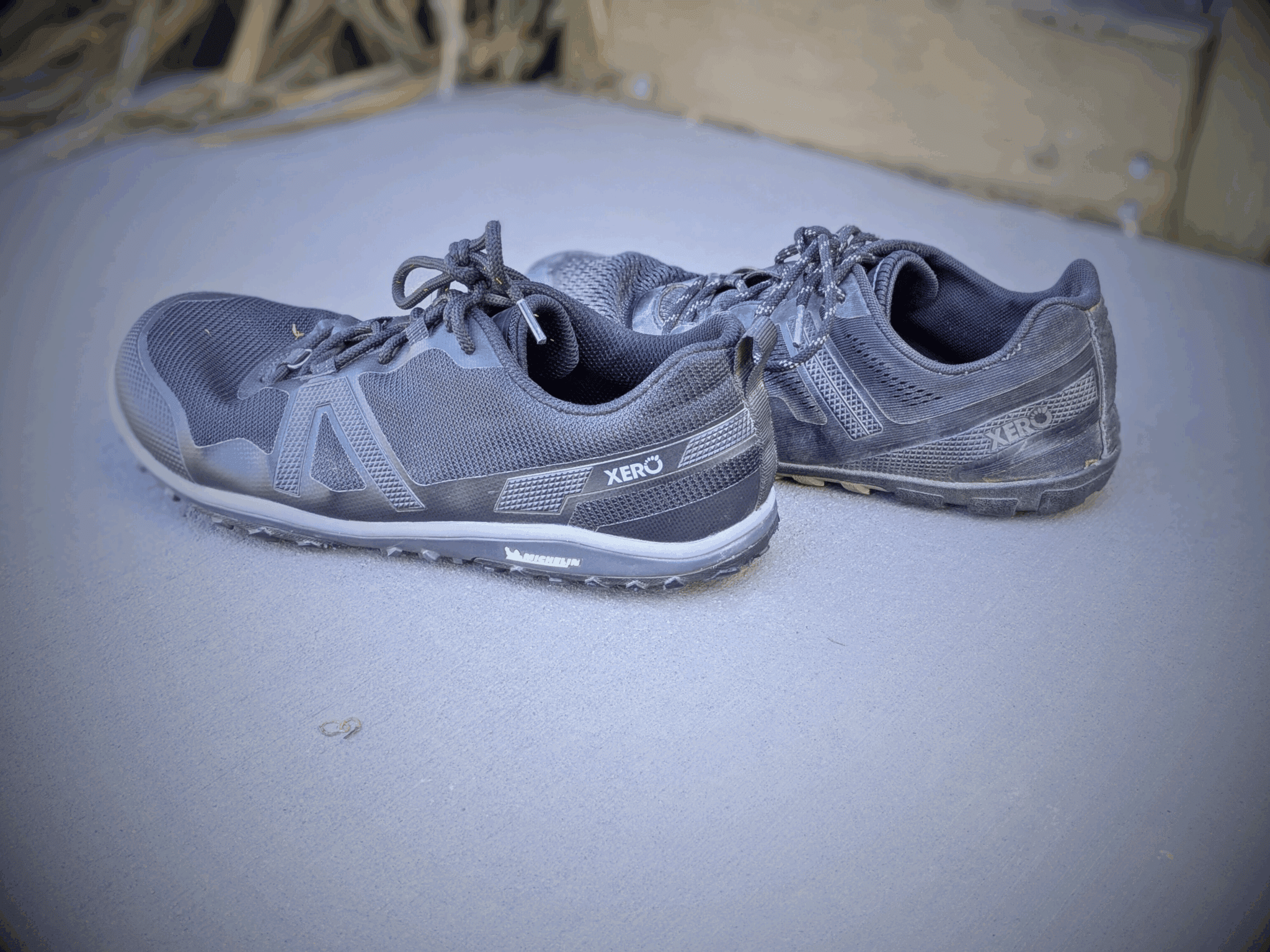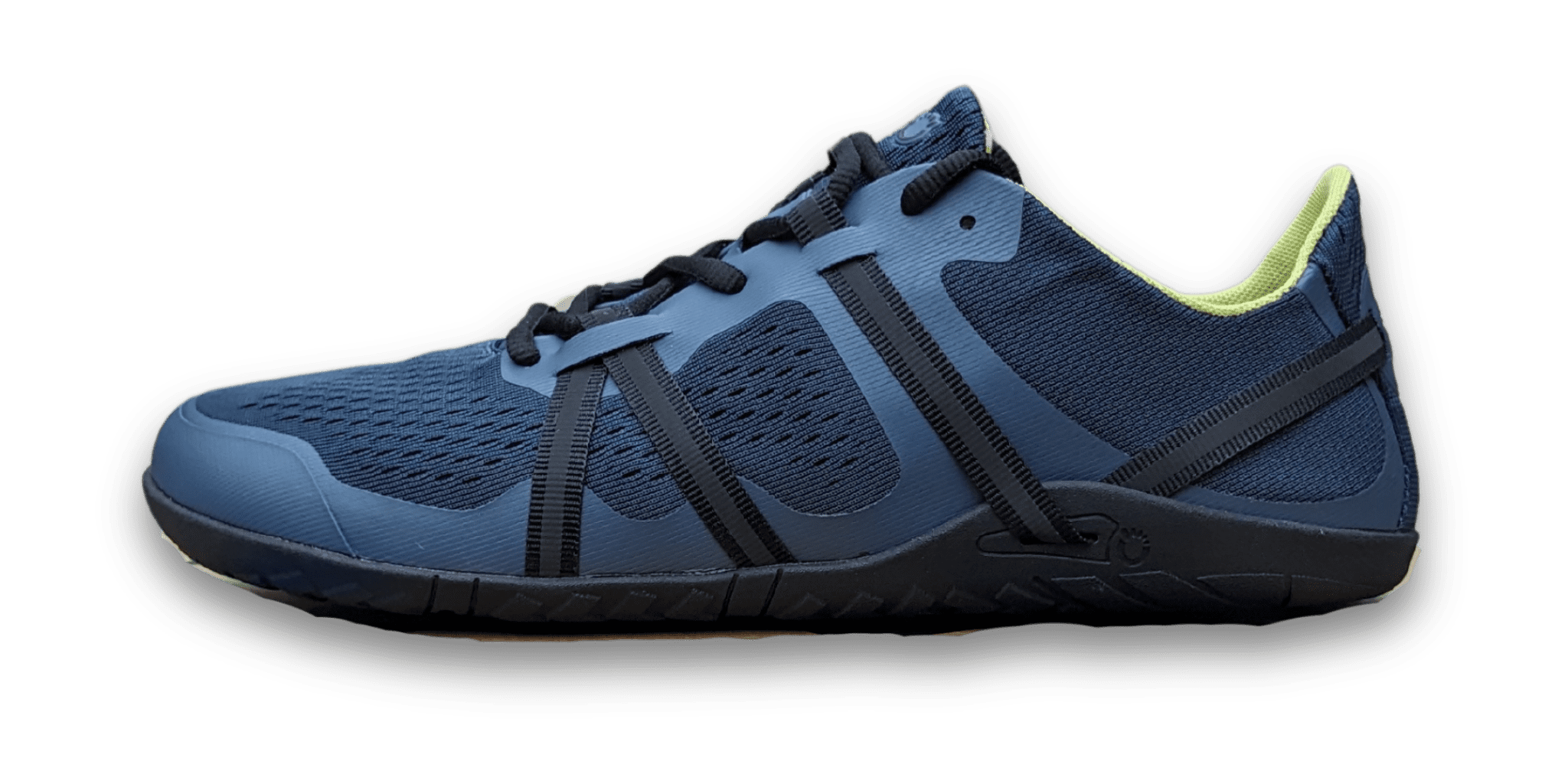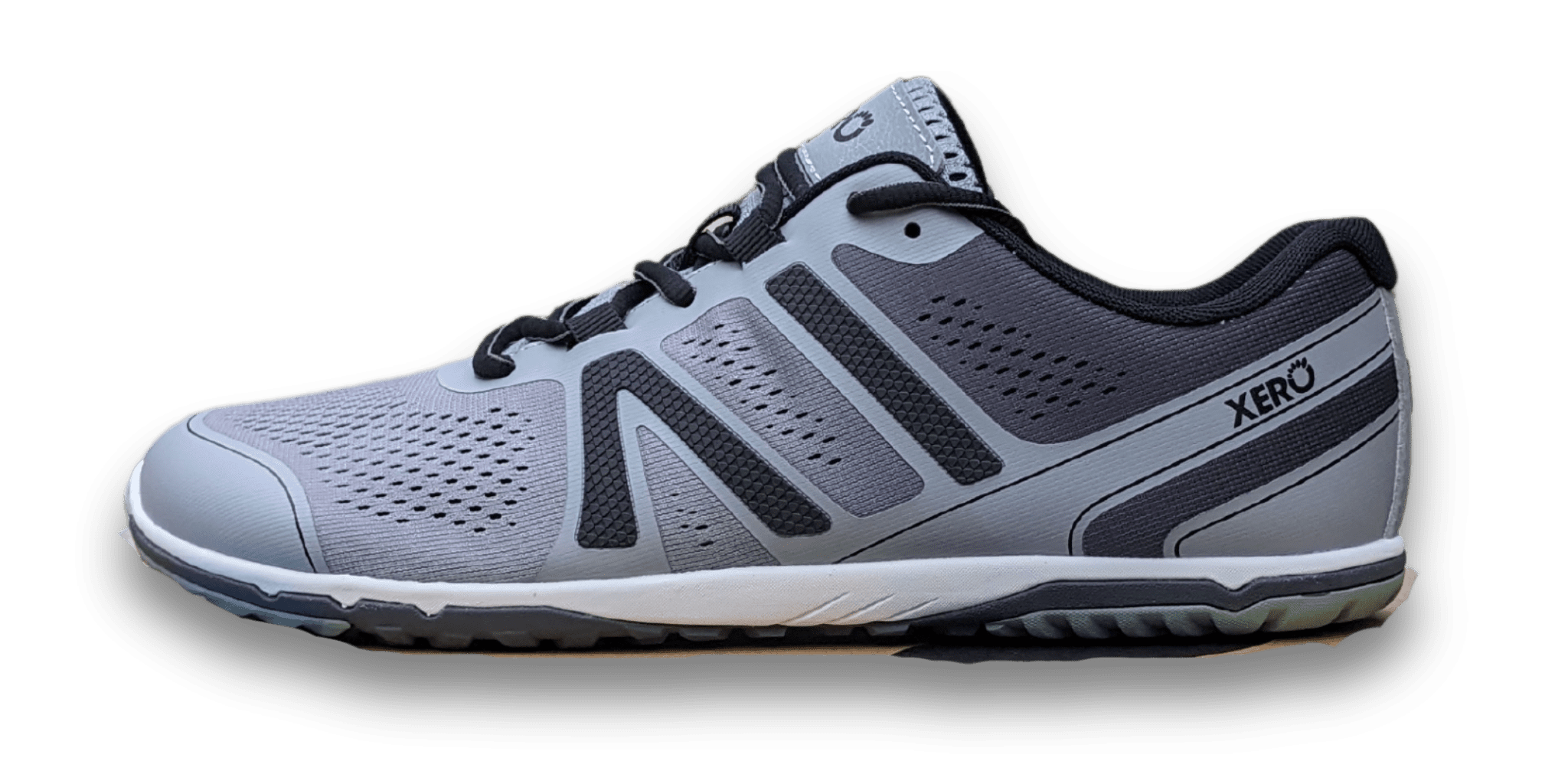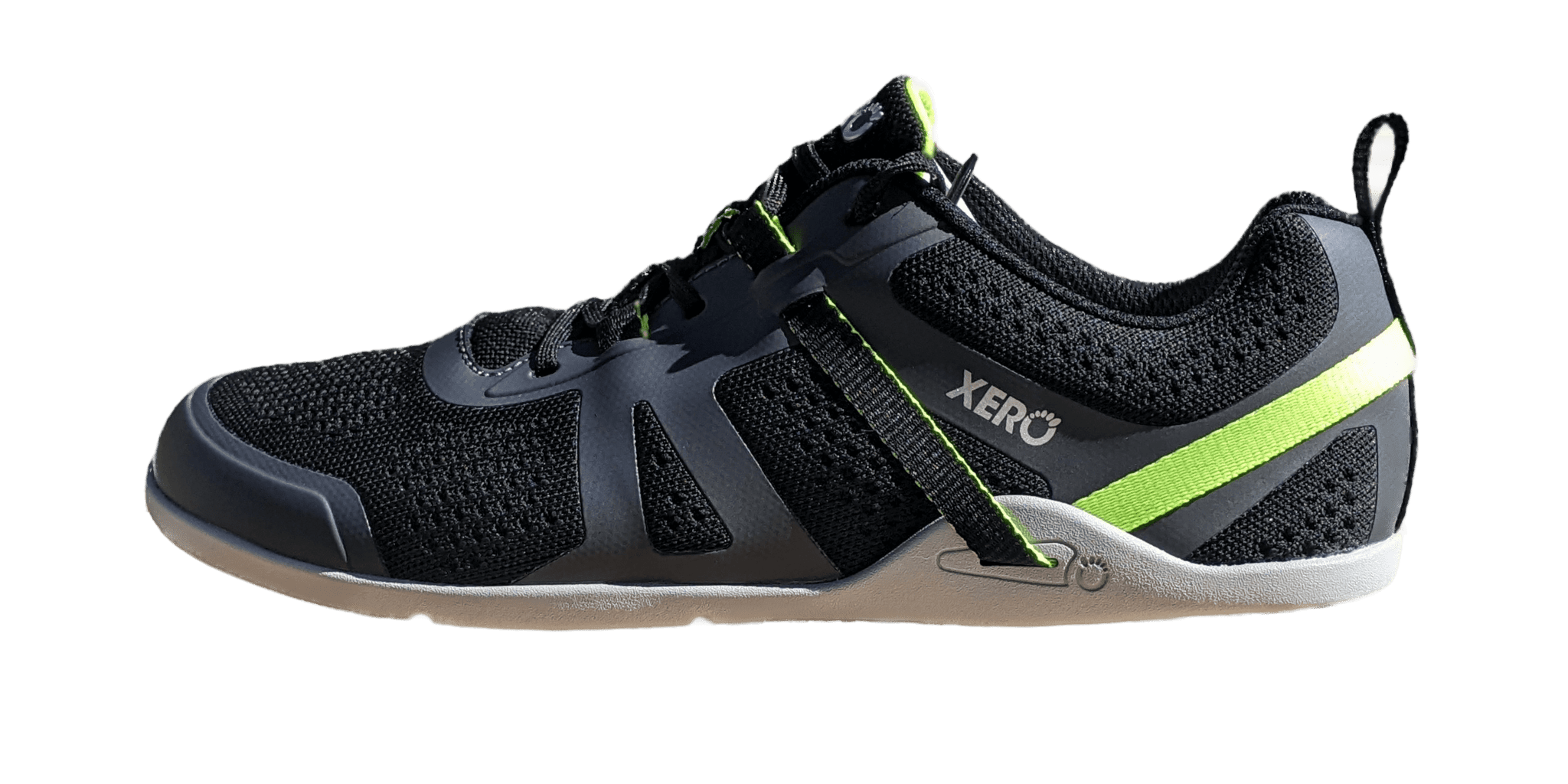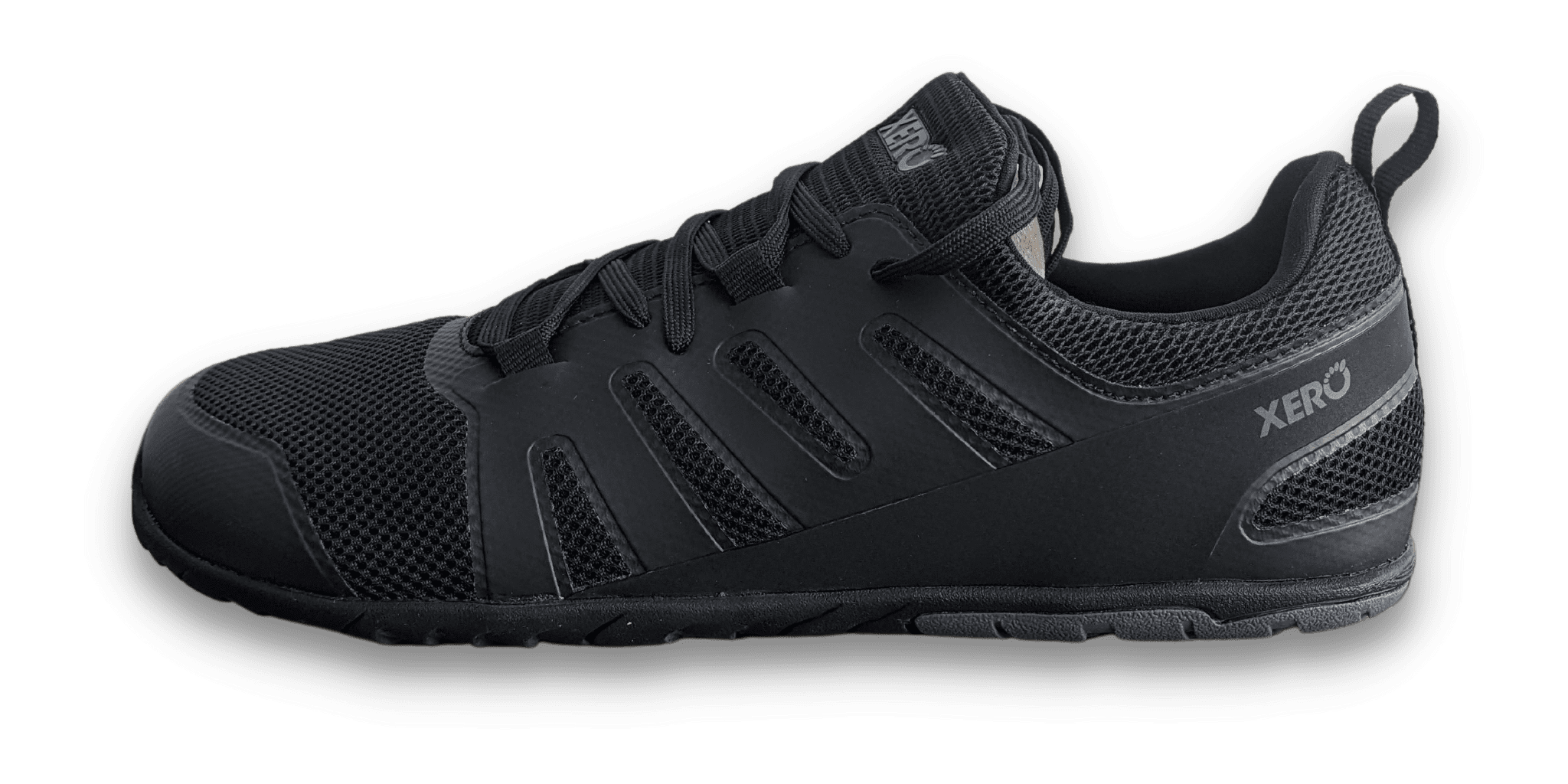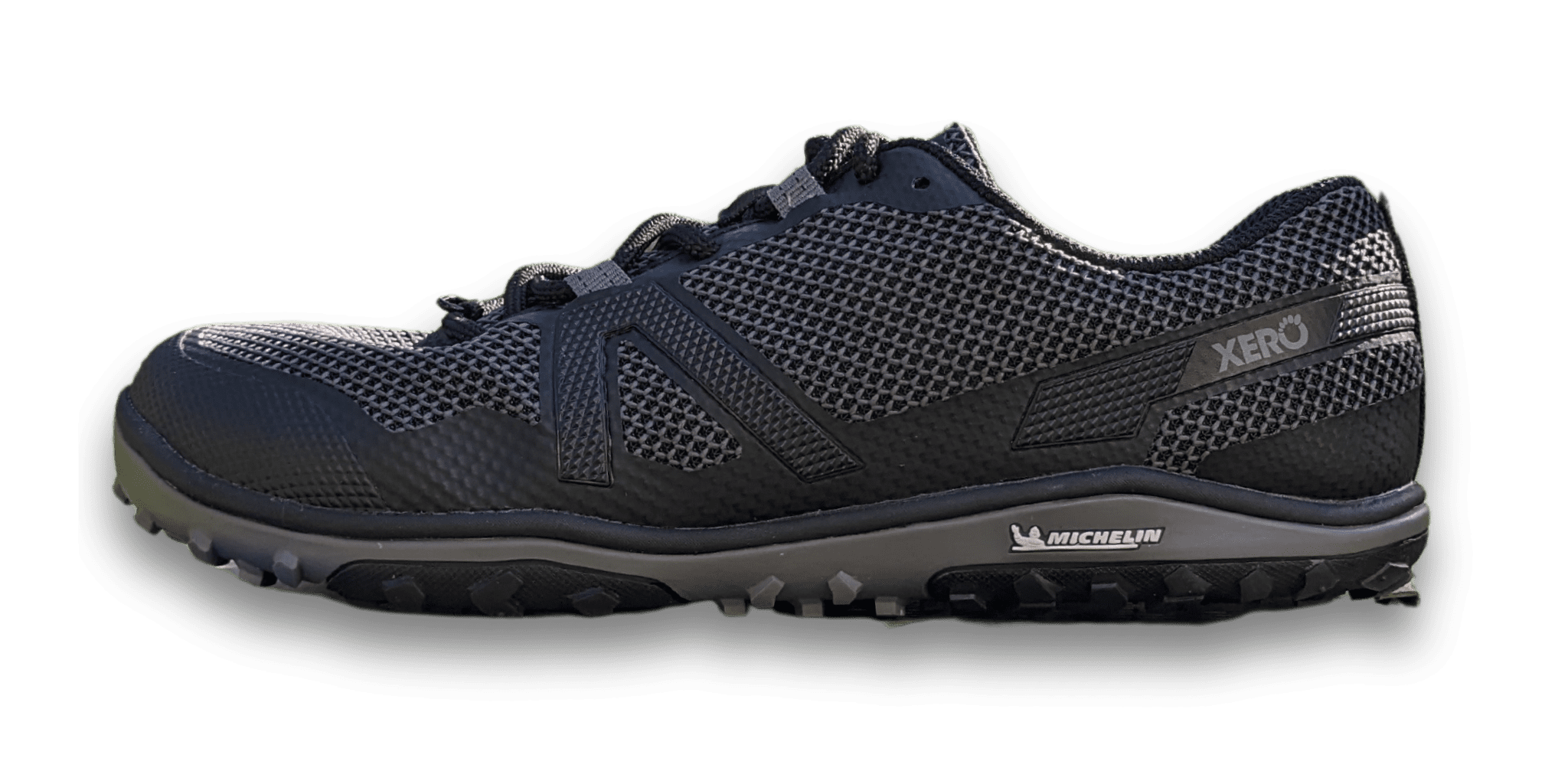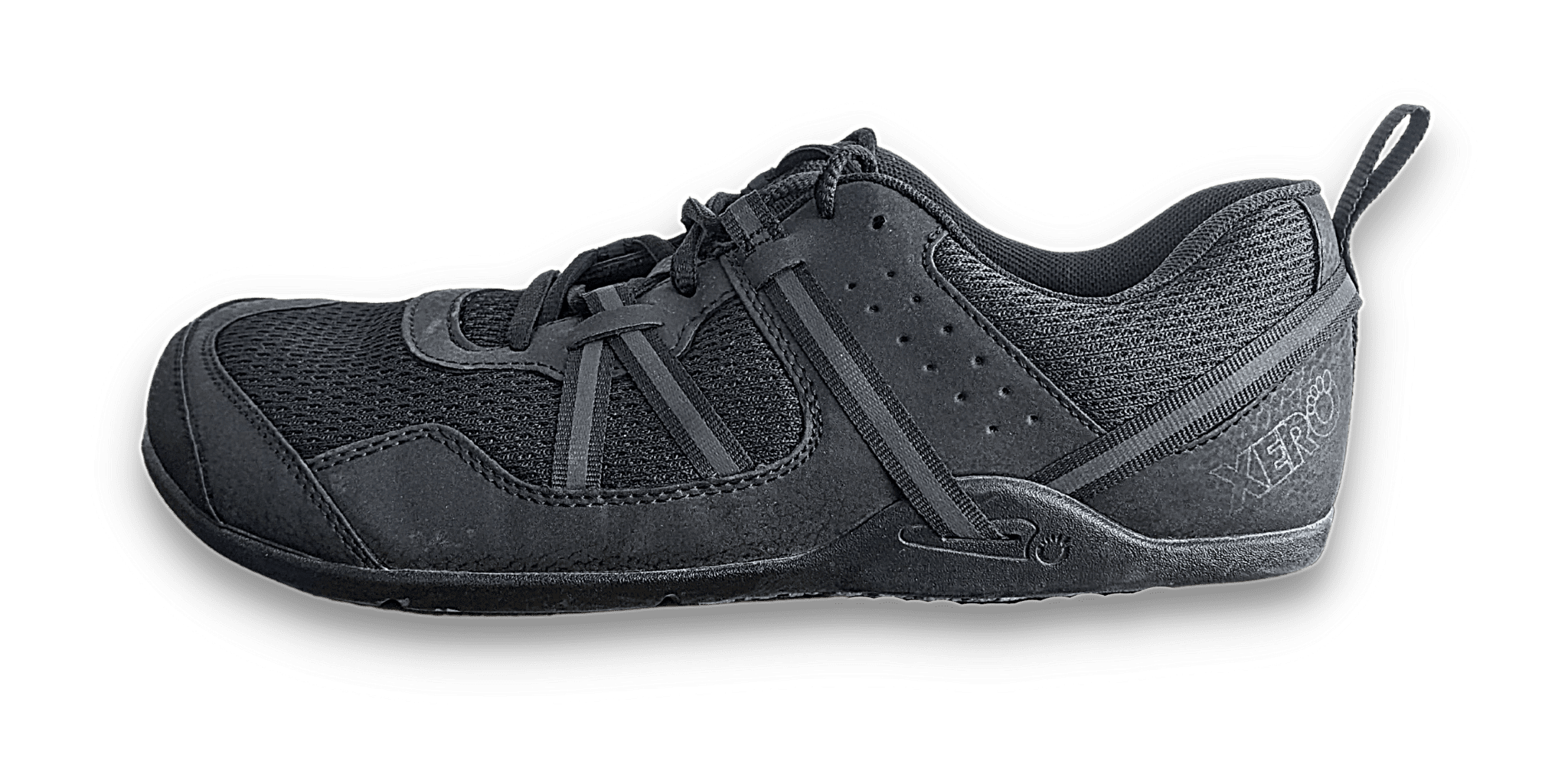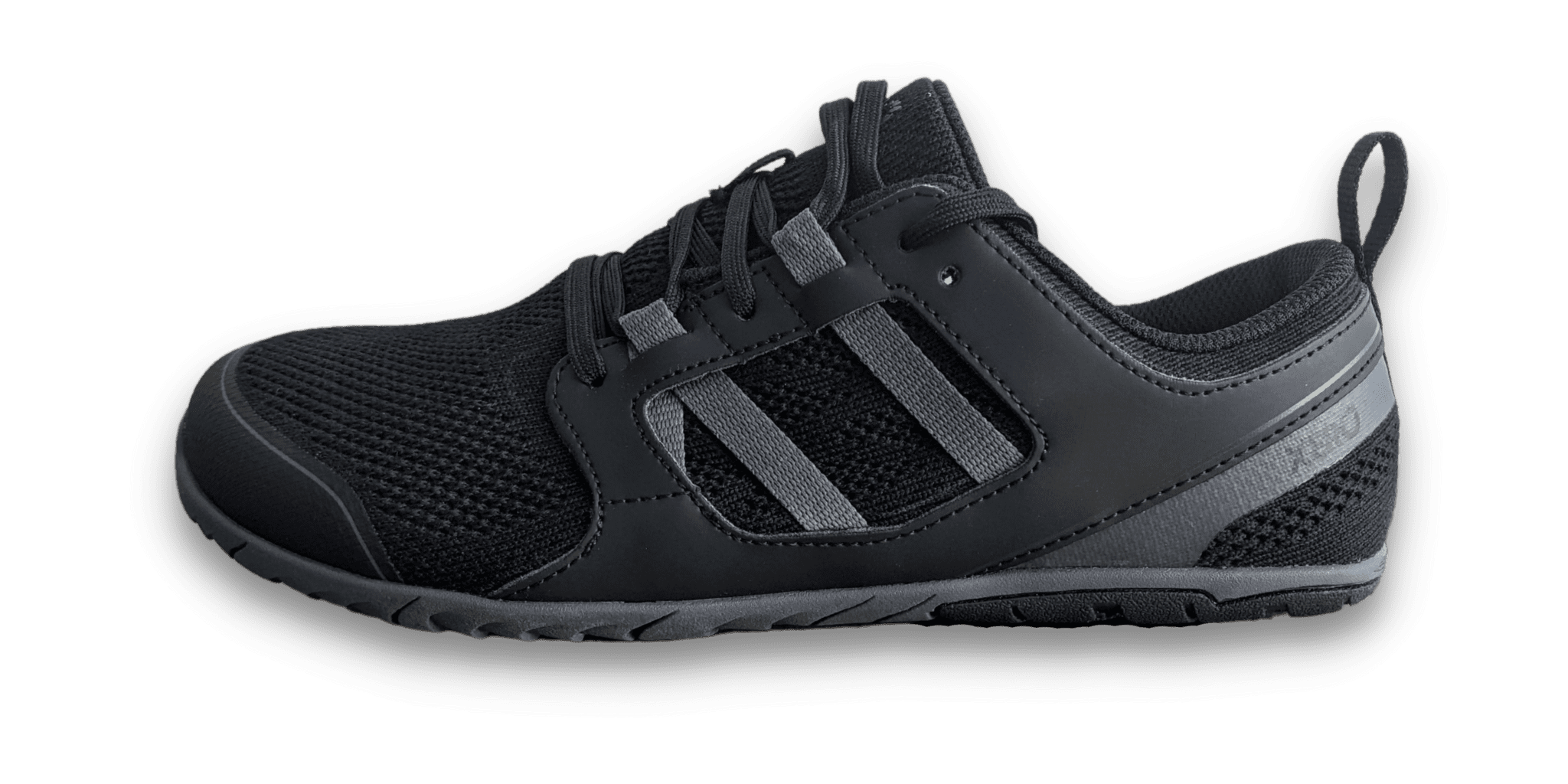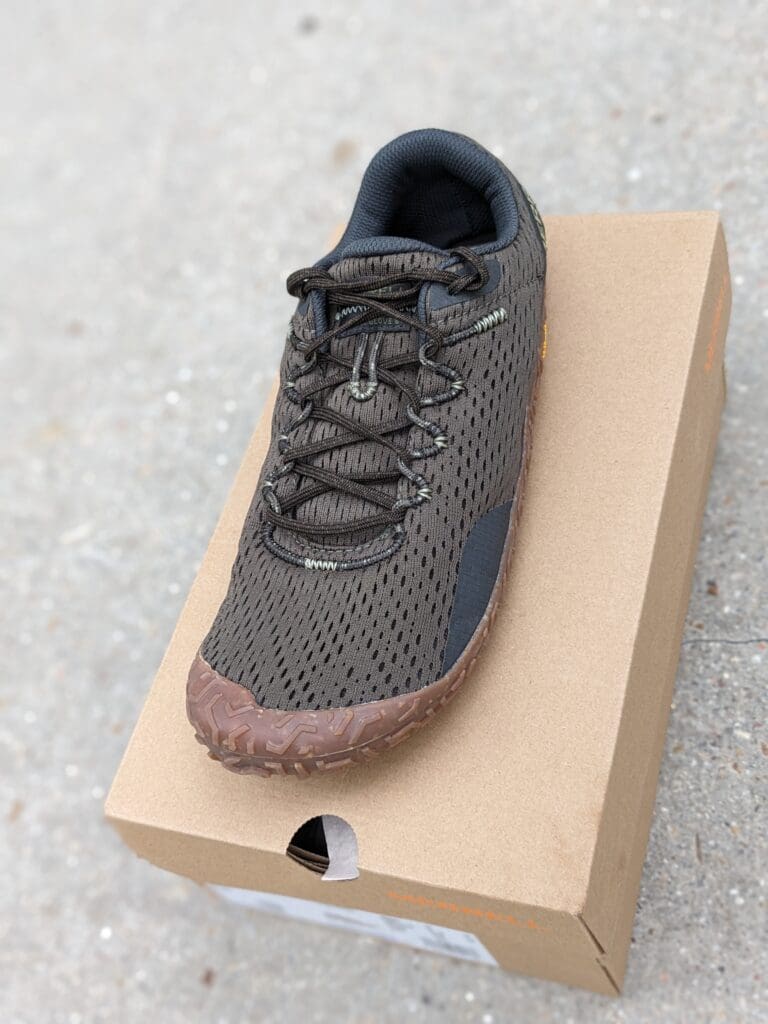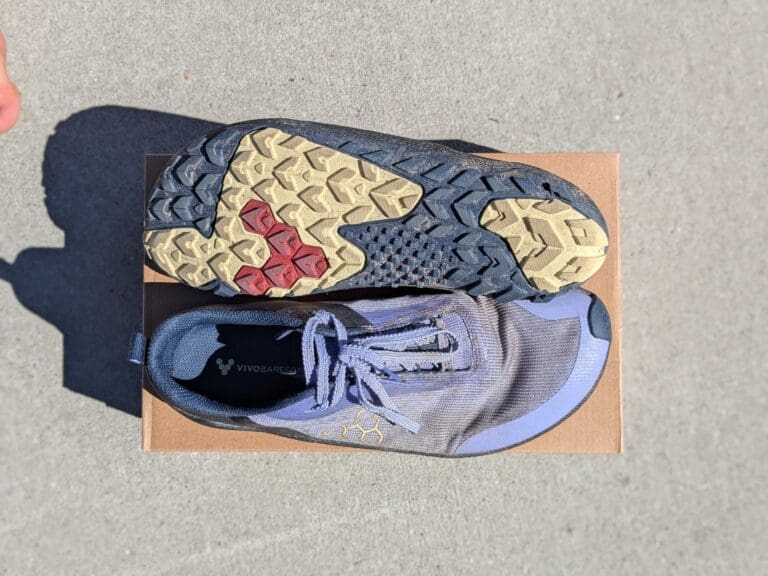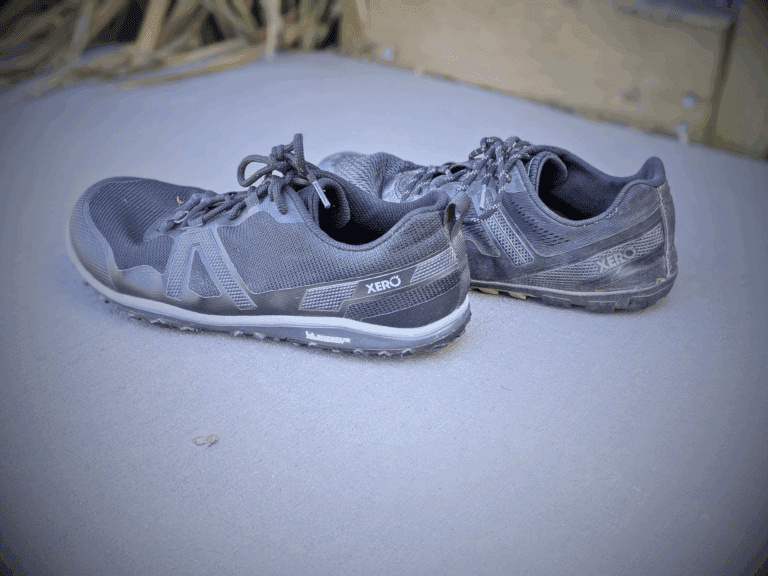Ever found yourself torn between going ultra-minimal on your trail runs or opting for a bit more beef in the protection department?
If you’re playing the Xero Shoes game, then this question probably popped into your mind when sizing up the Mesa Trail II versus the Scrambler Low EV.
Both are solid choices, but they cater to two different trail styles and runner philosophies.
I’ve spent time with both models, and I’m going to break down exactly where each shines — and where it falls a little short — so you can decide which one best fits your trail needs.
First, the similarities.
The Mesa Trail II and Scrambler Low EV offer a generous, semi-wide toe box that hugs your foot just enough for comfort and natural splay. This shoe is built around the barefoot running ethos — plenty of room up front without feeling sloppy. However, it’s also worth noting that it’s not the widest toe box on the market. If you have wider feet and need more toe splay, I’d suggest looking at brands like Freet.
Which minimal running shoe is for you?
Take a quick 5-question quiz to identify the perfect minimal running shoe for your feet! You'll get both road and trail options based on your answers!
Both models are true to size, but you may want a half size up for more toe room. Unlike many Xero Shoes models, I wear true to size in their trail range. If you’re yearning for a little more toe room, going up a half size solves all your issues.
Now the differences.
The Scrambler Low EV’s “false” stack height can mean the shoe doesn’t work for flat-footed folk. If you look at the side walls of the midsole of the Scrambler, you’ll notice they look high. Much higher than the reported 11mm stack height. And that’s because the midsole wraps up around the foot, creating a cup for the foot to sit in. This is not a problem for most, but if you’ve got a very wide midfoot or flat feet, you may spill over the edge, which could be uncomfortable.
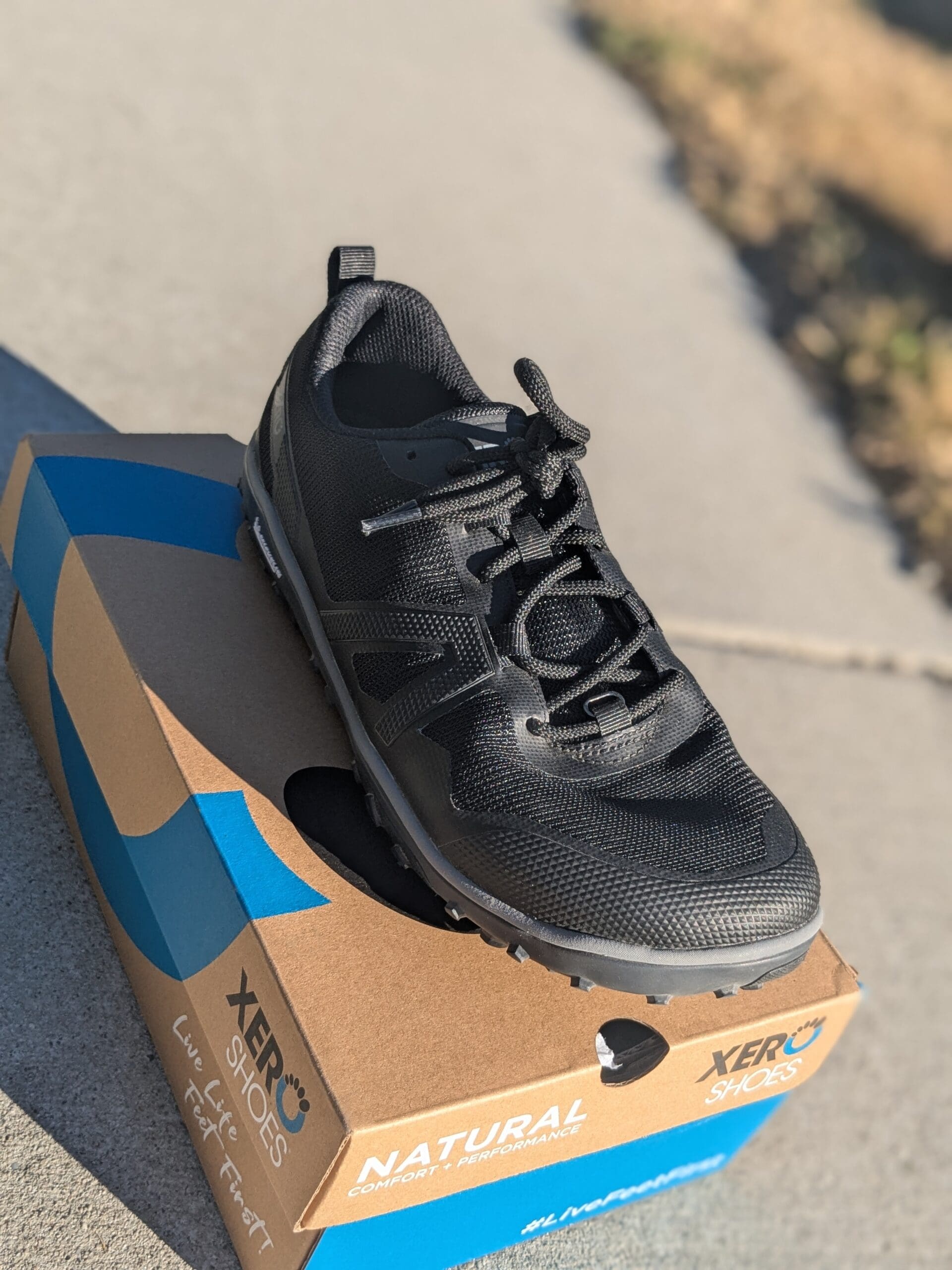
Both models are flexible, but the Mesa Trail II benefits from a fully pliable design. In contrast with the above, the Mesa Trail fits like a glove. With nearly all aspects being flexible, you simply slip your foot in and let the material wrap snugly around it. This is great for the oddly shaped feet.
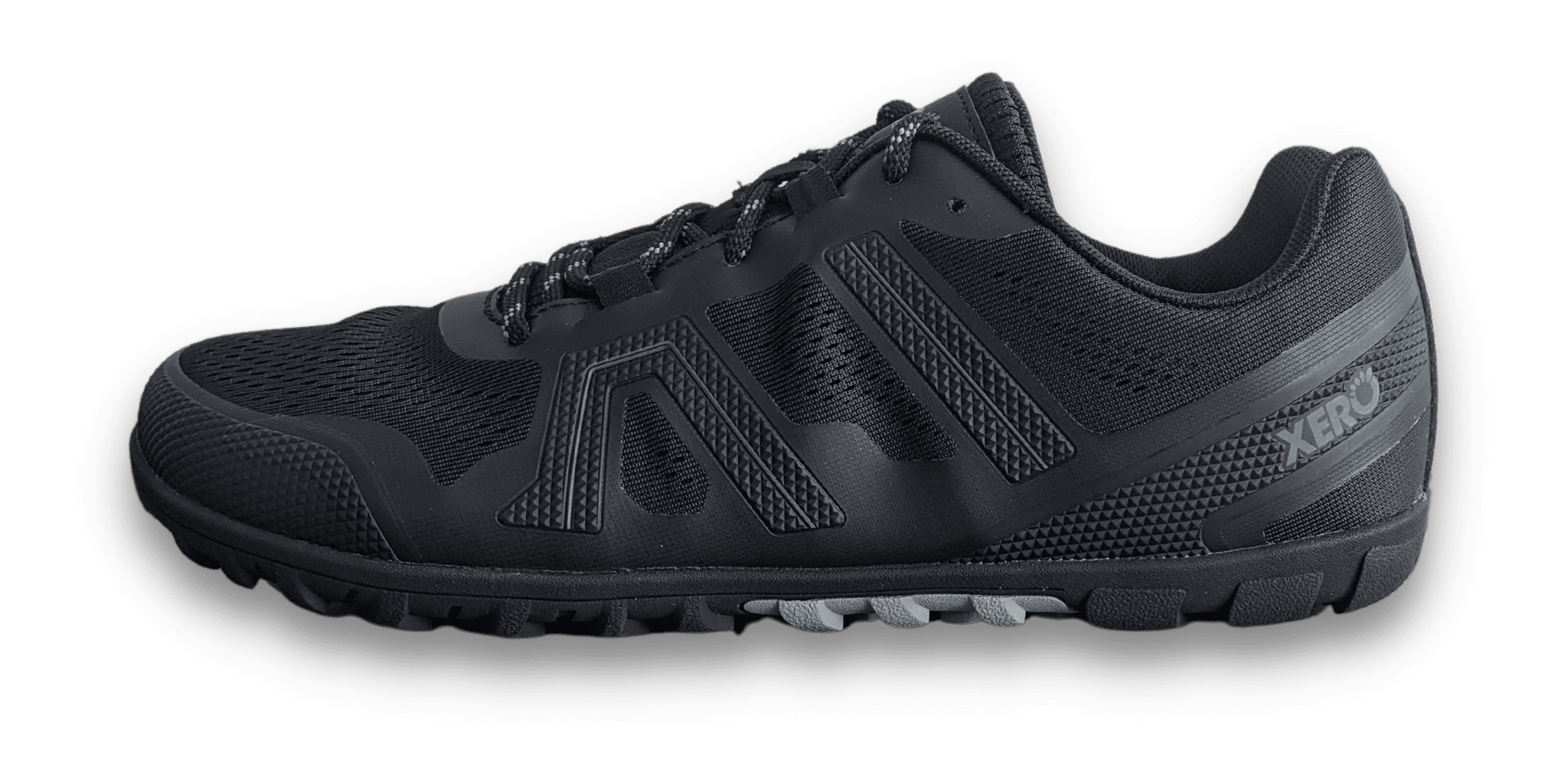
Xero Shoes Mesa Trail II
This is where the big difference is found.
The Mesa Trail II is all about that minimal, barefoot-inspired feel, with a thin sole that measures about 5mm. This keeps you incredibly close to the ground, allowing you to receive excellent tactile feedback on the terrain below your feet. If you’re someone who likes to feel every rock and root, this shoe delivers superbly. Note, the insole can add a little more stack height, but it’s still minimal.
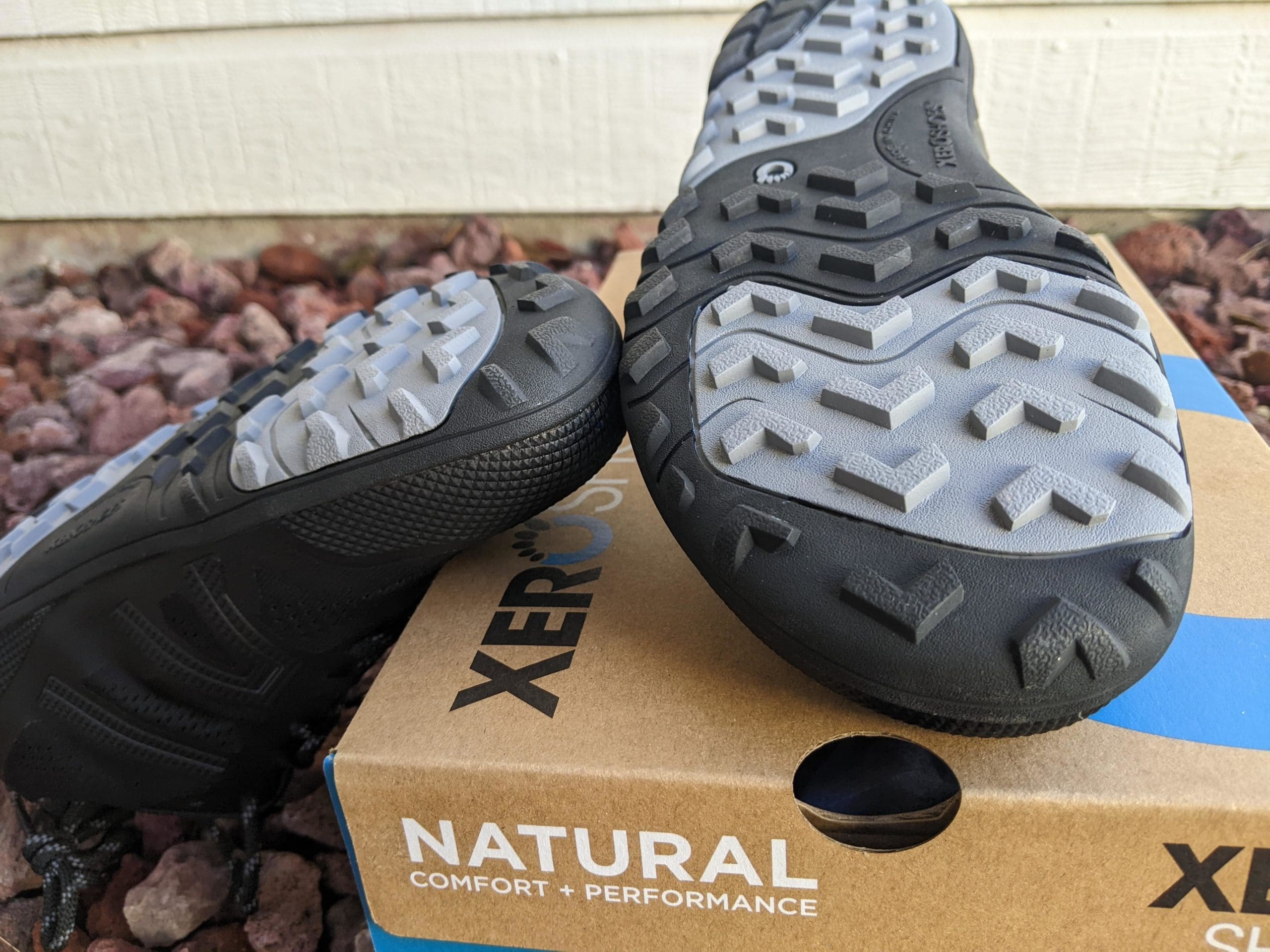
On the other hand, the Scrambler Low EV significantly enhances cushioning with an approximately 14mm stack height, including the removable insole. This means there’s noticeably more material between your foot and the ground, which protects you from sharp rocks and rough terrain. So, the decision here becomes “protection versus minimal feel.”
The Michelin outsole on the Scrambler is specifically designed for aggressive terrain, providing good traction in muddy or slippery conditions. At the same time, the Mesa Trail II uses a standard rubber compound with more sparsely spaced lugs. I’ve found the Scramblers to be much better in the mud and wet conditions, whereas the Mesa Trails do a good job in dry conditions.
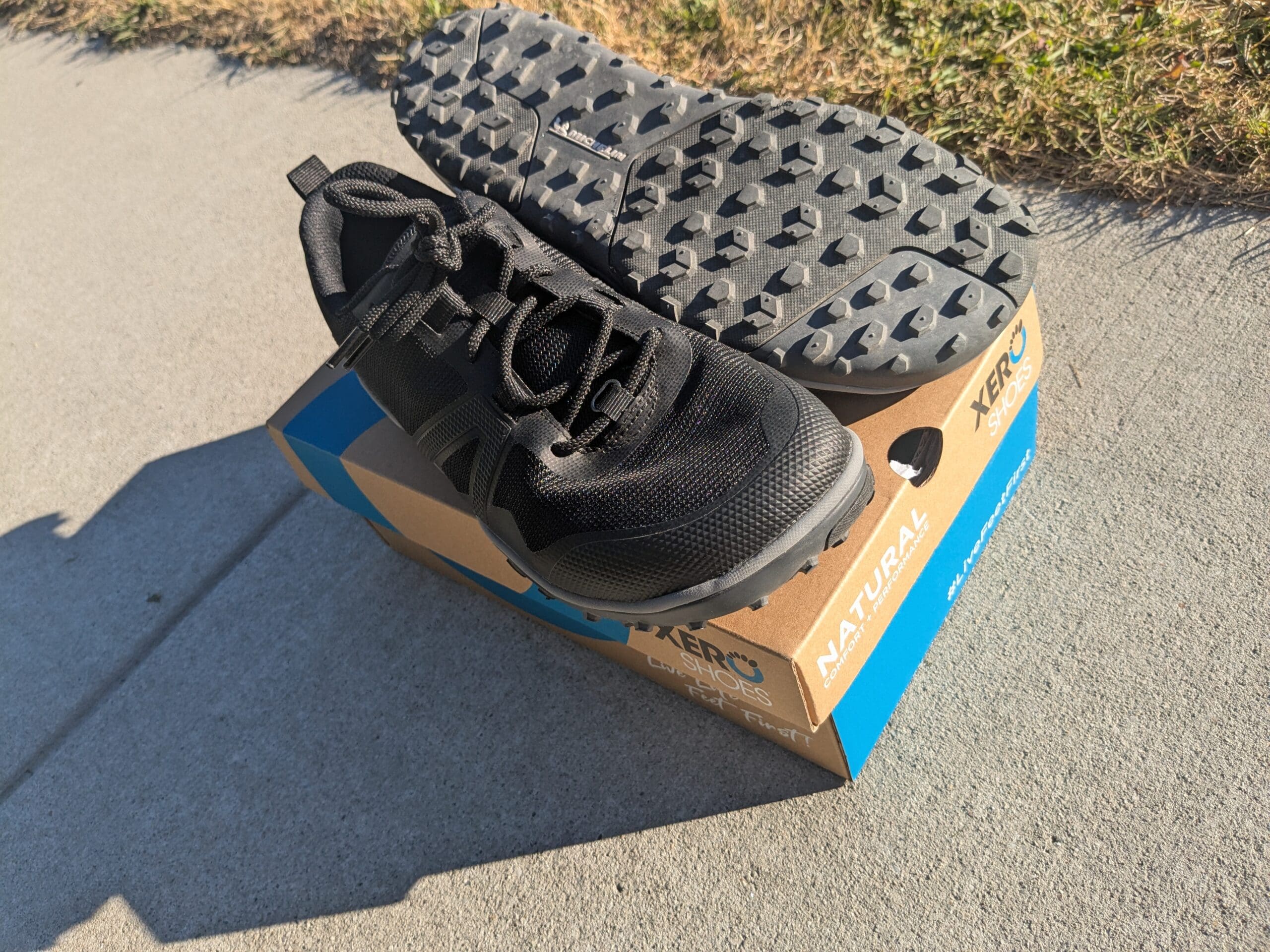
If you want a pure terrain feel and super flexibility, the Mesa will give you that barefoot experience. But if you want decent protection while still staying fairly minimal, the Scrambler Low EV’s thicker cushioning and grippy outsole make a strong case.
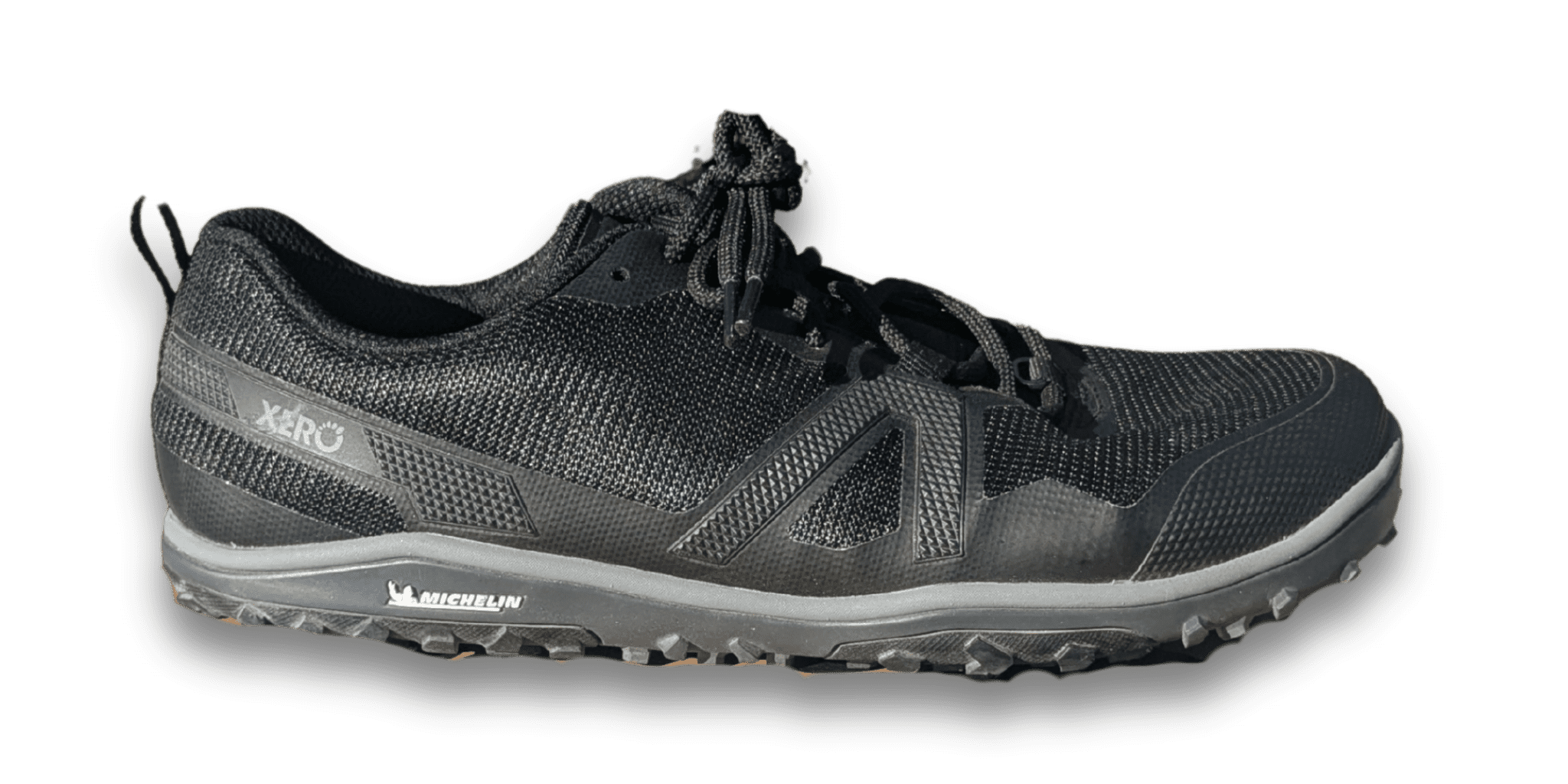
Xero Shoes Scrambler Low EV
The Mesa Trail II prioritizes weight savings (8.2 oz / 232g) and breathability, resulting in a slightly softer outsole and upper material. This works well for dry, mild trails, but can lead to quicker wear when exposed to jagged rocks or abrasive surfaces. Wearers who put the Mesa through hard conditions might notice the rubber and mesh don’t hold up as long as sturdier shoes.
Its lighter weight and ventilated upper make it a pleasure to run in during warm weather, but it comes with the cost of limited longevity on tougher terrain. If your runs stick mostly to packed dirt or forest trails with fewer sharp obstacles, the Mesa’s durability will be just fine.
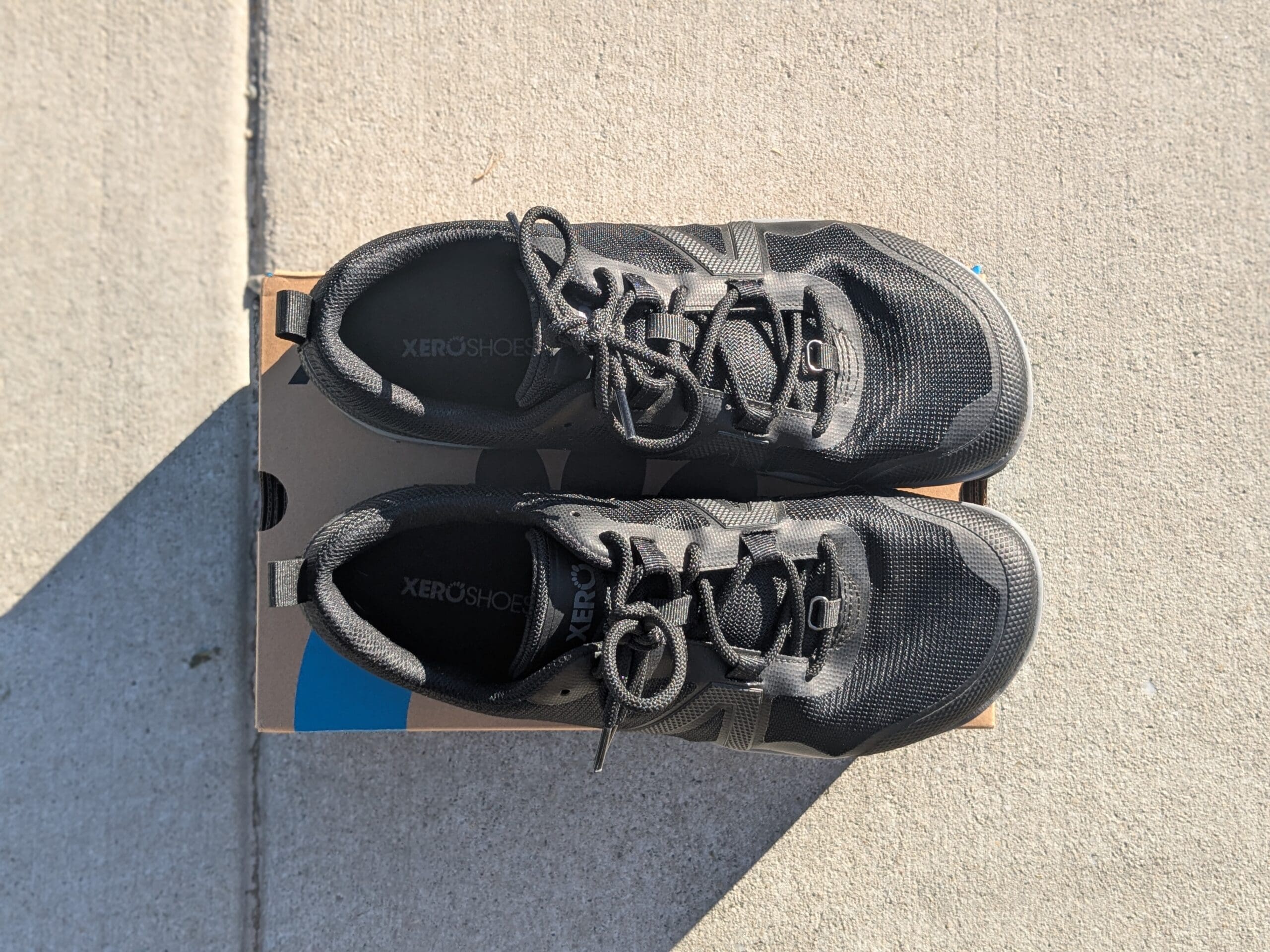
The Scrambler Low EV, however, is constructed with more abrasion-resistant mesh and features an outsole made of a substantial amount of rubber. I would warn users not to use this on the road or harder surfaces, but I’m still confident this outsole will last much better than the Mesa Trail’s.
This added durability does add a little weight, but it’s still reasonable for a shoe this rugged (261g / 9.2oz). If you’re someone who frequently hits rough terrain or gets through shoes quickly, the Scrambler will hold up better without compromising comfort too much.
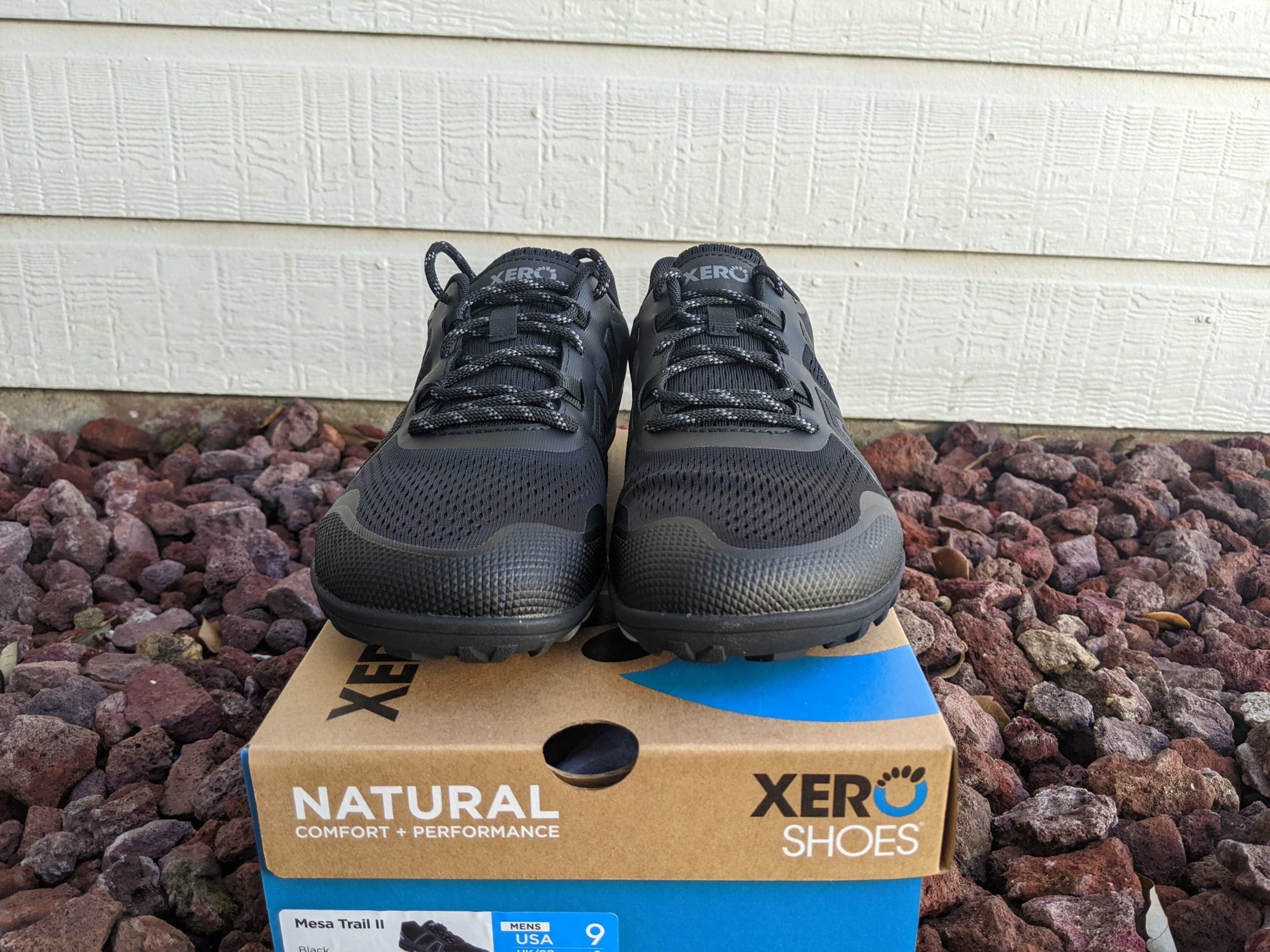
In summary, if you want lightweight breathability and you can stay agile, the Mesa serves you well. For longer service life and more toughness on rough trails, the Scrambler Low EV is a better companion.

Xero Shoes Mesa Trail II
The Mesa Trail II provides a moderate level of protection — enough to shield your toes from stubbing on small rocks or roots, but no more than that. Its protective toe cap is helpful but not heavy or bulky, keeping the shoe agile and light. If you kick a rock, it’s going to hurt!
The welded overlays give some stability to the upper, but this shoe is far from padded. Expect a moderate layer of defense, as a runner, you have light on your feet and are constantly thinking about your next step to avoid unwanted injuries. I don’t believe this is a bad thing; it’s purely another form of training that will serve you well in the long run.
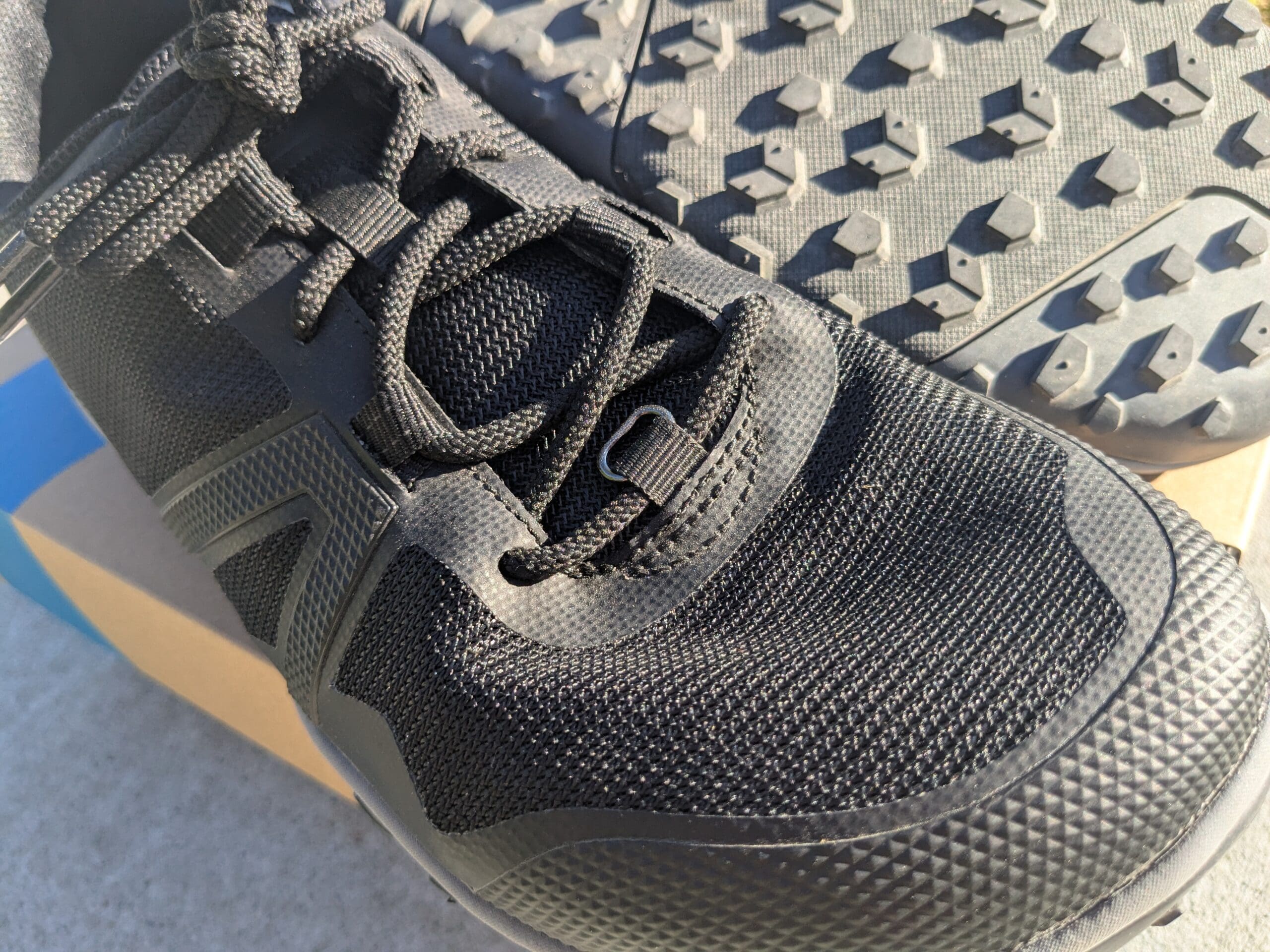
Contrast that with the Scrambler Low EV, which feels more like armor for your feet. The thicker midsole, combined with a solid Michelin outsole and reinforced upper materials, provides more protection without overdoing it.
This shoe’s design suits trail runners who often encounter sharp, rocky, or muddy conditions. For long days in the high alpine, the Scrambler Low is more like an insurance package to avoid foot injuries.
So when it comes to protection, the Mesa keeps it minimal where possible, while the Scrambler Low EV delivers more shielding without being heavy or cumbersome.

Xero Shoes Scrambler Low EV
If you value a pure barefoot feel with exceptional flexibility and a light footprint for mostly smooth or mildly rugged trails, the Mesa Trail II is a standout choice. It’s long been my favorite trail shoe, especially when it comes to an outright minimal feel.
If your runs lead into rougher, rockier, or muddier terrain — or if you want a minimalist shoe that doesn’t compromise protection and durability — the Scrambler Low EV offers a great middle ground. It provides enough cushioning and toughness to tackle aggressive terrain while maintaining zero-drop and wide toe box benefits.
I choose the Mesa Trail II for fast, dry trail days where flexibility and quick footwork are most important.
The Scrambler Low EV gets called up when the trails get rough and conditions demand more protection.
Whichever side you lean towards, Xero Shoes gives us quality minimalist options to suit varied trail needs. Hopefully, this side-by-side helps you find your perfect match.
Check out the full review of each shoe below!
Xero Shoes Mesa Trail II Review
Xero Shoes Scrambler Low EV Review
